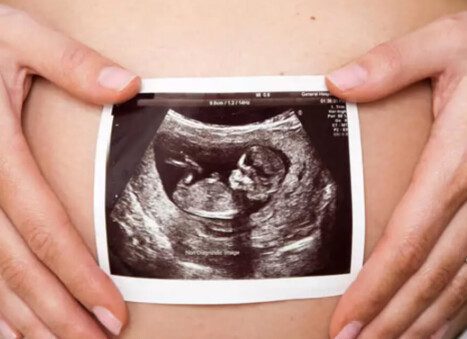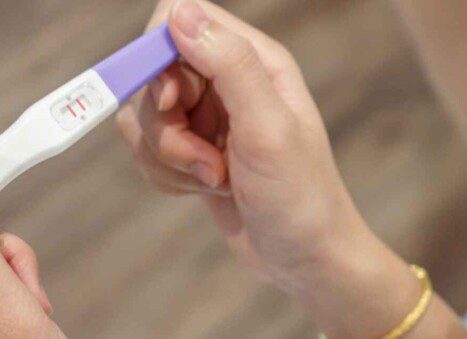
When Should You Take A Pregnancy Test After Implant Removal?
When to take a pregnancy test after implant removal?
A contraceptive implant is a long-term contraception that is inserted under the skin in the upper arm. It is a tiny, thin, and soft piece of plastic that helps you avoid unwanted pregnancy for at least three years. It can be administered only by a doctor or a nurse.
There are quite a few brands that manufacture these implants, namely, Norplant, Jadelle (Norplant II), Implanon, Nexplanon, Sino-implant (II), Zarin, Femplant, and Trust. But you want to know when to take a pregnancy test after implant removal, right? Let’s get right into it.
How Does This Implant Work?

This implant works by releasing progestational hormones into the body that help thicken the cervical mucus. The cervical mucus is best suited for sperm when it’s thin and stretchy. Thickening causes the environment to get toxic for the sperm, which in turn prevents fertilization of an egg and pregnancy.
The implant releases progestational hormones. These hormones thin the lining of the uterus. Now, this thinning, in turn, ensures that even when an egg was to be fertilized, it wouldn’t implant itself into the uterine lining. As long as you are not pregnant, you can fit these implants at any point of your menstrual cycle.
It is advisable that you do not indulge in unprotected sexual intercourse for at least 3 weeks before having this implant fitted to avoid a pregnancy. The process of fitting this implant takes just a few minutes. All you have to provide is your medical history and offer a pregnancy test as well as an STI test if needed.
Once you are on the clear, the clinician will anesthetize your upper arm locally and then slide the implant under your skin. You may feel a little pressure but almost no pain.
Upon inserting the small flexible plastic rod, the clinician will apply a dressing to protect the area. Some clinicians add a pressure bandage to reduce bruising.
A Few Things To Remember:
If you fit this implant in the first five days of your menstrual cycle, you can protect yourself from unwanted pregnancies straightaway. But if you fit it at any other time of your cycle, you will have to take contraception for an additional 7 days.
You can protect yourself if you insert the implant before the 21st day of giving birth. But if you take after the 21st day, an additional contraception of 7 days is necessary.
Keep in mind that this implant will not protect you from sexually transmitted diseases, so using a condom is still required.
Who Can Get This Implant

Most women can get this implant fitted, but it may not be suitable for a few. It can be difficult if someone has the following conditions –
- Pregnant
- Liver disease
- Breast cancer
- On Medication that has interactions with progestational
- You have unexplained bleeding after sexual intercourse or between periods
If you want to remove this implant for any reason, it can be removed by a doctor or nurse in the same process of injecting a local anesthetic and making a tiny incision to extract the implant out of your arm. Your question about when to take a pregnancy test after implant removal becomes more accessible to answer.
If you want to avoid getting pregnant after removing the contraceptive, then you should check out some other birth control alternatives.
Implant And Its Effects
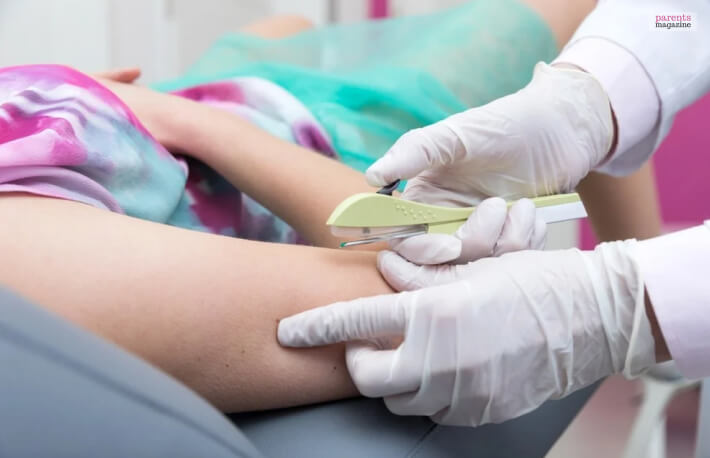
Most women get back to their normal menstrual cycle and regain their fertility within a month of removing the implant. For the first few months, your period can be lighter, heavier, or longer after removing the implant.
The clinical trials of these implants have shown women have been able to get pregnant as early as 7-14 days after removing the implant. Ovulation, therefore, can take place pretty much immediately after removing the implant.
How To Implant Birth Control?
Are you curious about the process behind implanting birth control? Well, to get a brief idea about that, read the following steps below.
- To begin with, you have to put your elbow like the letter “L.”
- With the help of a local anesthetic, your upper and inner arm is numbed so that you don’t feel any pain.
- Mostly, the implant is put in your nondominant arm, but it is up to you which arm you want to use for getting the implant done.
- With the help of needle-like equipment, they put the implant under your skin.
- There is no need for any stickers, but they often put a bandage to prevent any kind of bruising.
- It will only take a few minutes.
When to Take a Pregnancy Test After Implant Removal
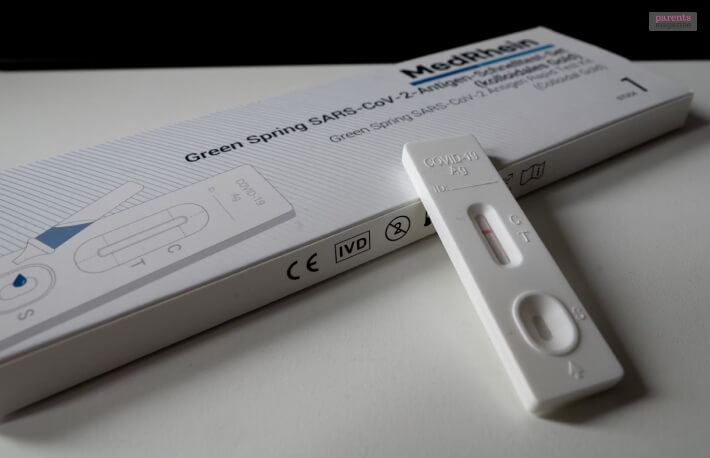
If you are asking how soon after implant removal you will ovulate, it all depends on your health, your hormones, your menstrual cycle, and your attempts to get pregnant. If you are able to remove the contraceptive implant correctly, then you can get pregnant within one or two weeks after removing the implant.
When there’s a mistake during the removal process, it can take up to several months before you revert your fertility. If you want to prevent pregnancy after removing the implant, you should start a different method of contraception as soon as you are ready.
If you are (TTC) trying to conceive and have unprotected intercourse just after the clinician removes the implant, you can take a pregnancy test within 7-14 days after the removal.
If your menstrual period is late, it could mean that you are pregnant. But again, your rapidly changing hormone levels could give you a false positive, which could turn negative the next day.
Can The Implant Fail
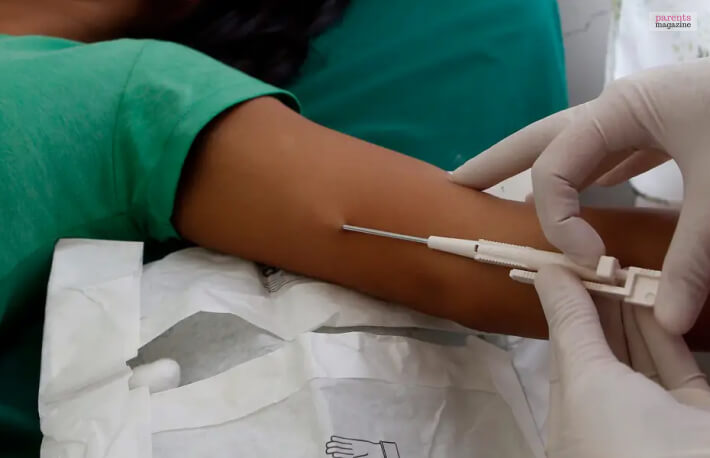
This contraceptive is more than 99% effective and can last upto 3 years. That does not negate the possibility of getting pregnant despite the implant. 1 out of 100 couples can experience an accidental pregnancy inspite of using an implant.
Side Effects Of Implant
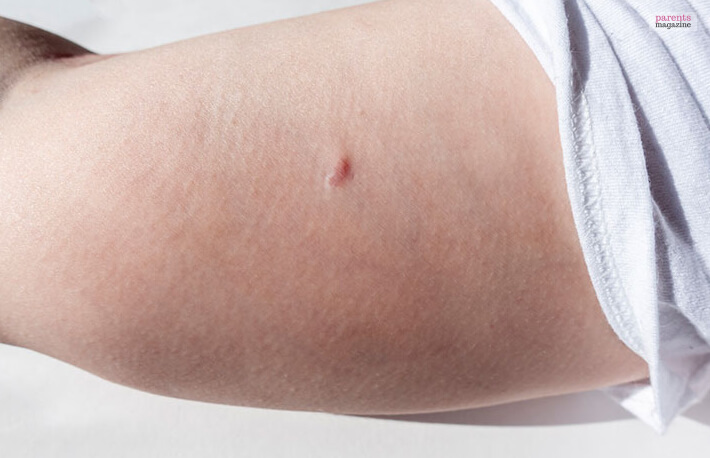
- Acne
- Pain
- Stomach pain
- Weight gain
- Breast tenderness
- Mood swings
- Depressed mood
- Vaginitis
- Nausea
- Viral infections such as sore throats
- Back pain
- Local pain
- Dislocation of the implant (severe cases)
- Headache
It would be good to remember that certain medications for certain conditions could reduce the effects of the implant. The conditions include HIV, epilepsy, tuberculosis, and some herbal medicines, such as St. John’s wort. He may prescribe antibiotics for the treatment of the same.
Factors That Might Impact The Test Results
Pregnancy tests are mostly accurate. However, certain factors might manipulate the results easily.
The Test Timing
If you take the test just after removing the implant, the result might turn out to be a false negative. The reason behind this is that the hCG levels might not be sufficient for giving an accurate result. It is best to wait for a few weeks after removing the implant to get accurate test results.
The Test Quality
If you plan to use a home test kit, you must use a reputable and reliable brand. Those brands will ensure to give you an accurate result. If relevant regulatory authorities approve a brand, then you must opt for the same. Plus, also check whether the brand has positive customer reviews or not.
Use It Properly
It is important to follow the instructions given in the pregnancy test kit to get the exact accurate results. Read the provided instructions, understand the timings that have been recommended by the company, and execute the test properly.
Medical Conditions And Medications
There are a few medications, like fertility drugs or medicines that contain hCG, that can manipulate the test results. Along with that, certain medical conditions, like ectopic pregnancy or different types of cancer, can give a false negative or false positive result.
It is best to consult a healthcare provider if you are concerned that your medical conditions or medicines can impact your pregnancy test results.
How Soon Do You Ovulate After Implant Removal
If you are removing the birth control implant, then you can expect to start ovulating soon. It normally starts within a few weeks after removing the implant. Yes. You’ll be ready to get pregnant after a few months again. However, ovulation takes some time.
Are you planning to conceive afterward? In that case, there is no exceptional timeframe, especially for this type of contraceptive. You can just follow the same process as you do with other types of contraceptives. Most women start to revert back to their pregnancy cycle within 1 to 3 months of stopping birth control pills.
But if you aren’t planning to get pregnant after removing the implant, you can start to take other types of contraceptives.
When To Contact Your Health Provider

Contact your doctor or clinician immediately if you see the following symptoms:
- You cannot feel the implant
- You get pregnant
- You feel local pain and see discoloration of skin at the site of the insertion of the implant
- The implant feels like it has changed its shape
To Conclude
Contraceptive implants are typically highly effective. They have very few side effects that can impact the individual to a great extent. Now that you know when to take a pregnancy test after implant removal, it becomes easier.
The added benefit of being able to get pregnant as soon as you are off the implant makes it even more popular among women, especially in the United States.
If you have thoughts to share regarding contraceptive implants or have experience with using these and have tips for other women, please do leave a comment below. We would love to hear from you.
Additional Reading:
Already have an account?
Sign In
Create your account
User added successfully. Log in






